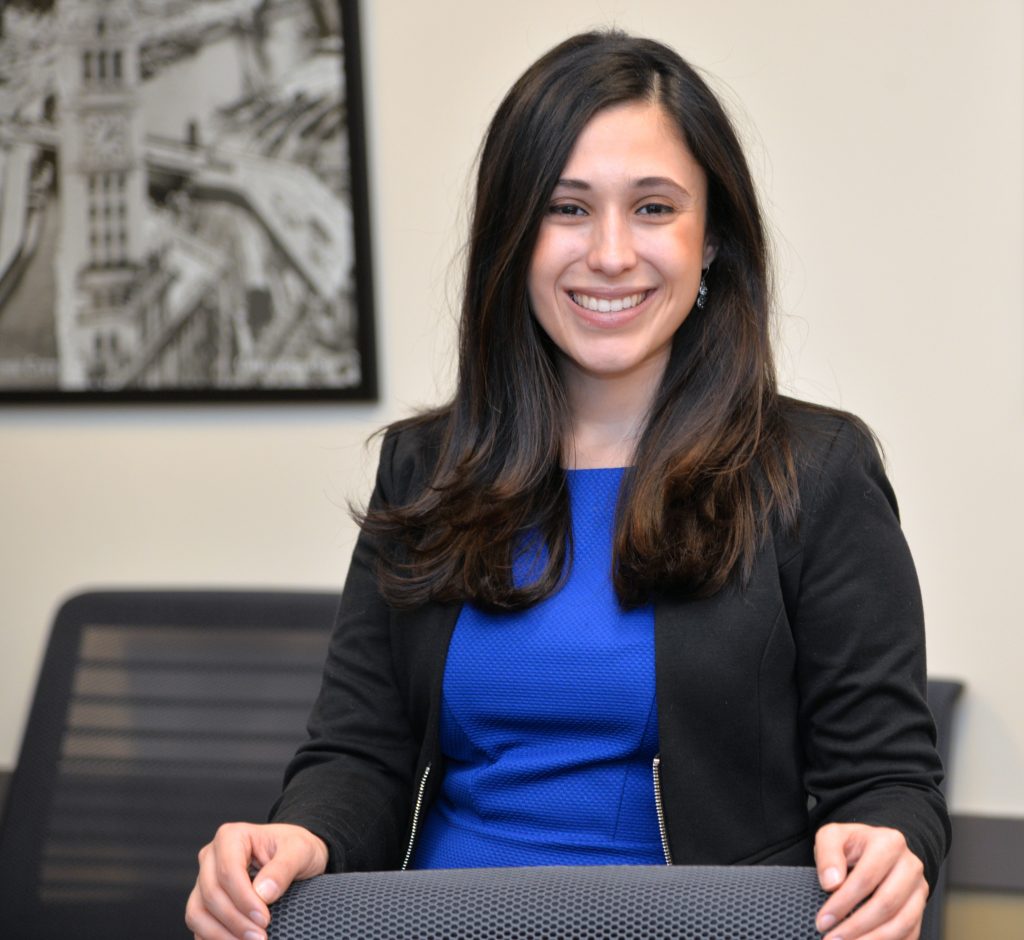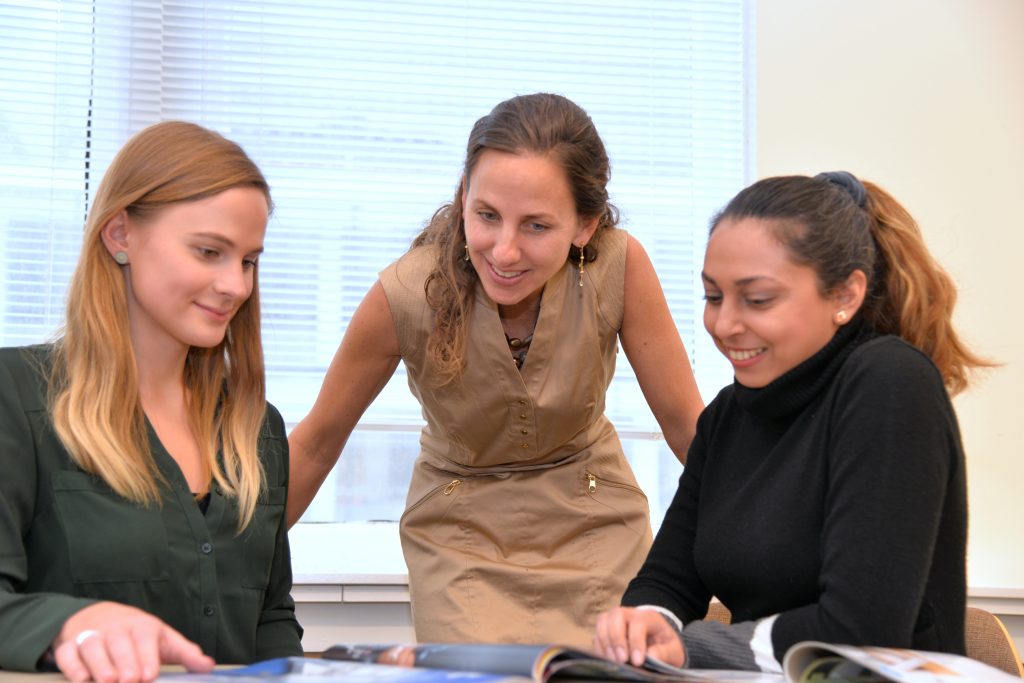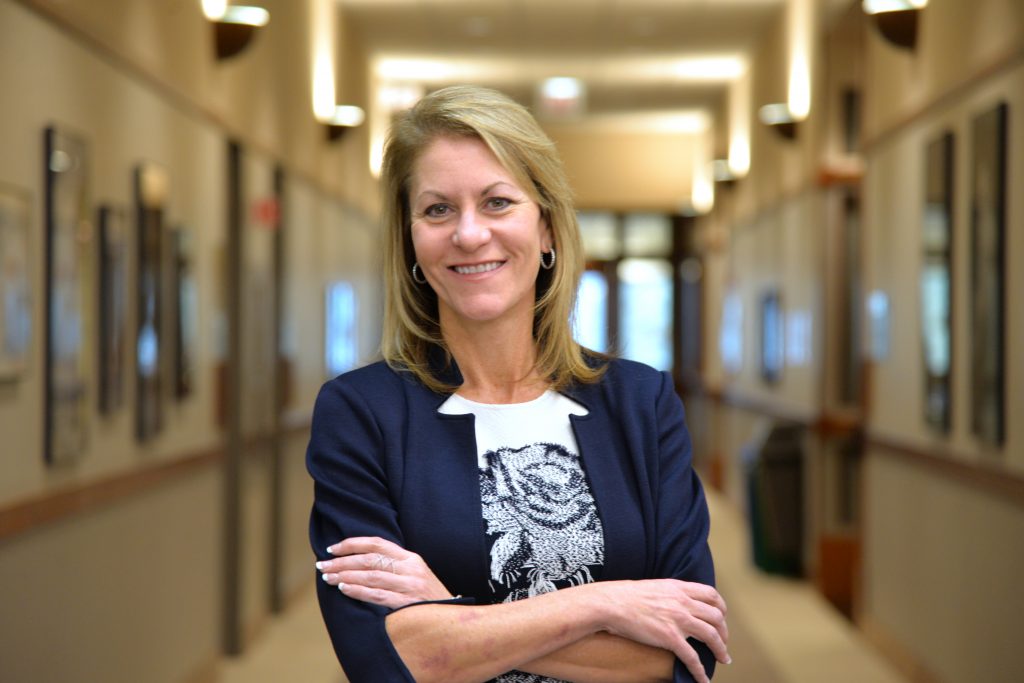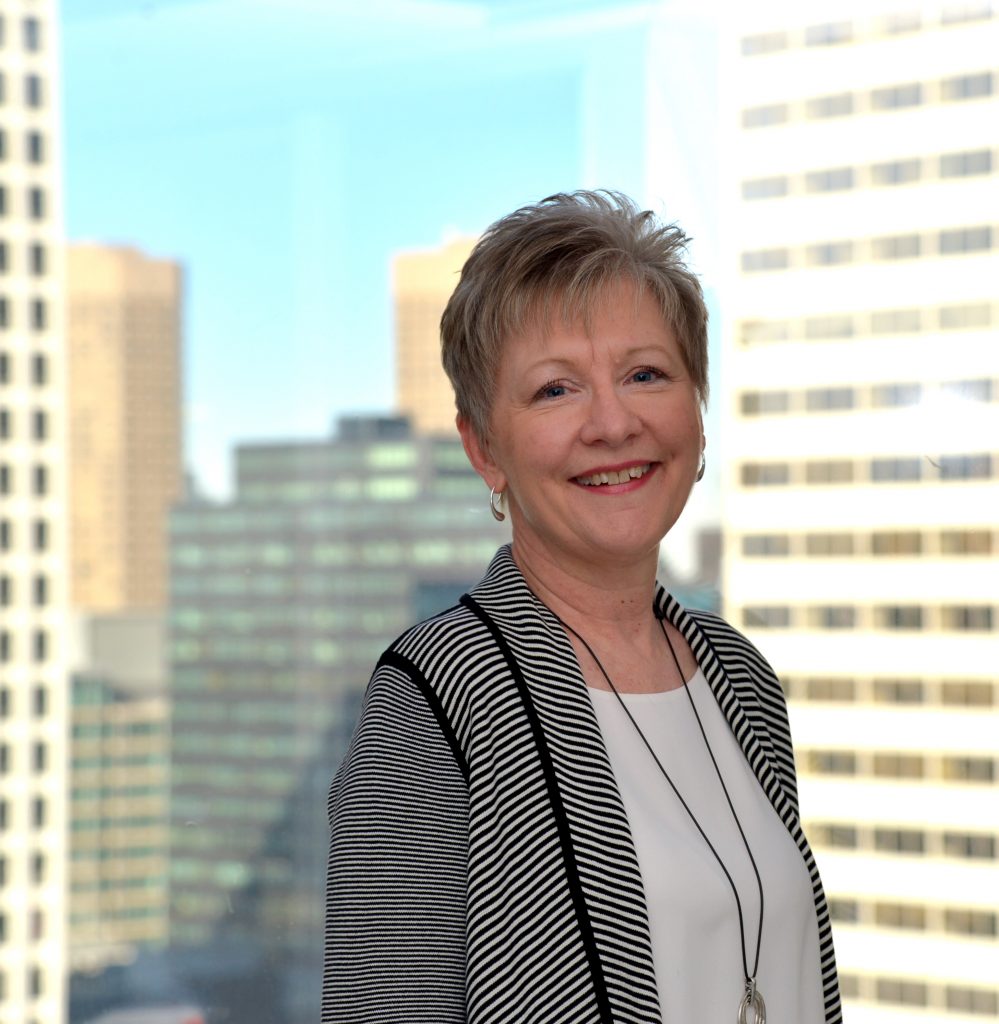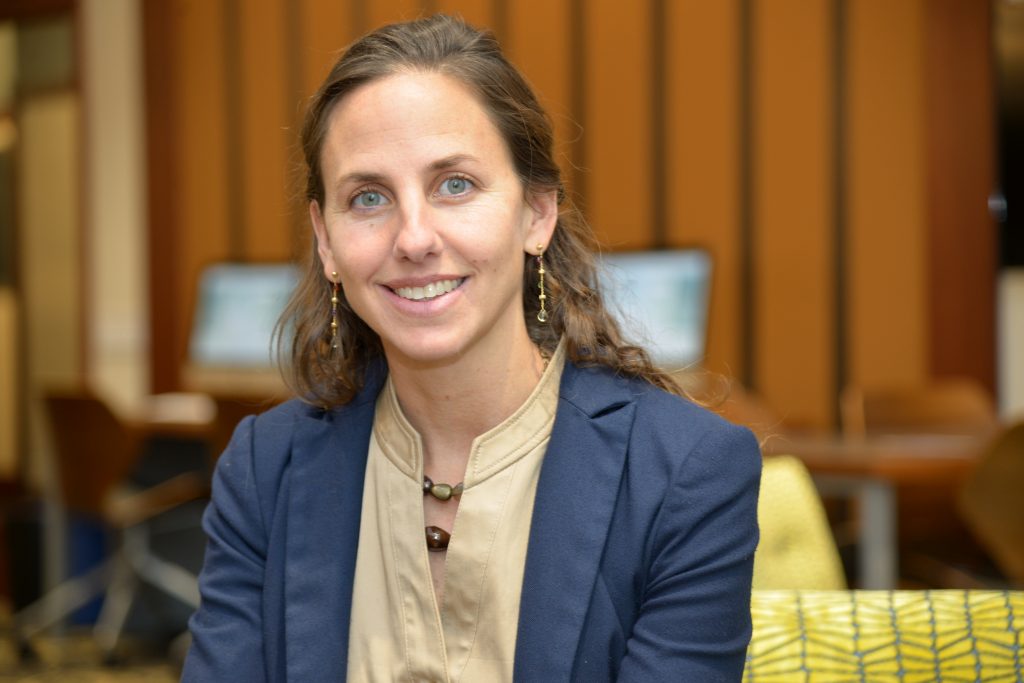Misty Johanson Appointed Interim Dean

Misty Johanson, PhD, an associate business college dean, professor and director of the School of Hospitality Leadership, has been named interim dean of the Driehaus College of Business. She is the first woman to serve as business college dean at DePaul.
“I’m delighted that Dr. Johanson has accepted the invitation to lead the Driehaus College of Business during this time of transition,” DePaul Provost Marten denBoer says. “Her nearly 20 years of experience in education, combined with her outstanding leadership skills, welcoming character and financial acumen will serve the college well.”
Johanson joined DePaul in 2009 to help establish the School of Hospitality Leadership, which she has directed since 2014. She has served as an associate dean since 2011, overseeing areas that include academic quality, accreditation and advisory council engagement.
Under her leadership, the hospitality school has earned accolades for its innovative teaching and faculty research, and forged strong ties to Chicago’s world-class hospitality industry. The Journal of Hospitality and Tourism Education recognized DePaul’s hospitality and leadership program as the best in Illinois in 2015. The J. Willard and Alice S. Marriott Foundation awarded a $1.8 million grant to the school in 2016 to create and endow a new Center for Student Development and Engagement. The center, believed to be the first of its kind in the country, provides students with professional development and mentoring opportunities with industry leaders. A new Executive in Residence program, funded by Hyatt and Lettuce Entertain You Enterprises, brings executives into the school to network with faculty, advise students and connect them with the hospitality industry.
In addition to receiving multiple excellence in teaching awards, Johanson has published more than 50 refereed scholarly articles and two textbooks. In 2015, she became executive editor of the Journal of Hospitality and Tourism Research, the hospitality field’s top research journal. Prior to joining DePaul, Johanson was a faculty member in the University of Hawaii’s and Georgia State University’s hospitality programs. She started her hospitality career with Marriott International after graduating from Michigan State University, where she later returned to complete her master’s and doctoral degrees in hospitality business and tourism.
There is nothing that drives me more than preparing highly qualified students to succeed in a wide array of business and management fields.
“As interim dean, I look forward to a continued collaboration with faculty and staff within the college, as well as our many industry partners in Chicago and our alumni.”
Johanson will continue to lead the School of Hospitality Leadership during her interim appointment, which begins July 1. The Office of the Provost expects the dean search for the Driehaus College of Business to begin in the 2017-18 academic year.
Alumnae Named to Kellstadt Leadership Roles

Christa Hinton (MBA ’98, EDD ’12) has been promoted to director of the Kellstadt Graduate School of Business, where she oversees student recruitment, admission, academic advising and career management services. Hinton has worked at DePaul since 2001 and previously led the Kellstadt Career Management Center as director and later as assistant dean. She was president of Women in Business before joining DePaul.
Jennifer Kopczynski (MED ’08, BUS MS ’17) has replaced Hinton as director of the Kellstadt Career Management Center. She previously served as associate director of the center and is an adjunct professor. She held a similar role in MBA student career services at the University of Chicago Booth School of Business before coming to DePaul. Kopczynski and her DePaul team offer a wide range of career advice and services tailored to the needs of graduate business students and alumni.
Hinton and Kopczynski say their priorities include enhancing the cocurricular experience for students and staying connected with alumni. “We want alumni to know that our relationship with them doesn’t end at graduation,” Hinton says. “We are always there for them, whether they are looking to enhance their skills by returning to earn another MBA concentration or graduate degree, are seeking career support through our networking events and one-on-one career advising, or want to come on campus to speak and share their knowledge with students.”
DePaul Joins Chicago’s 1871 Business Incubator
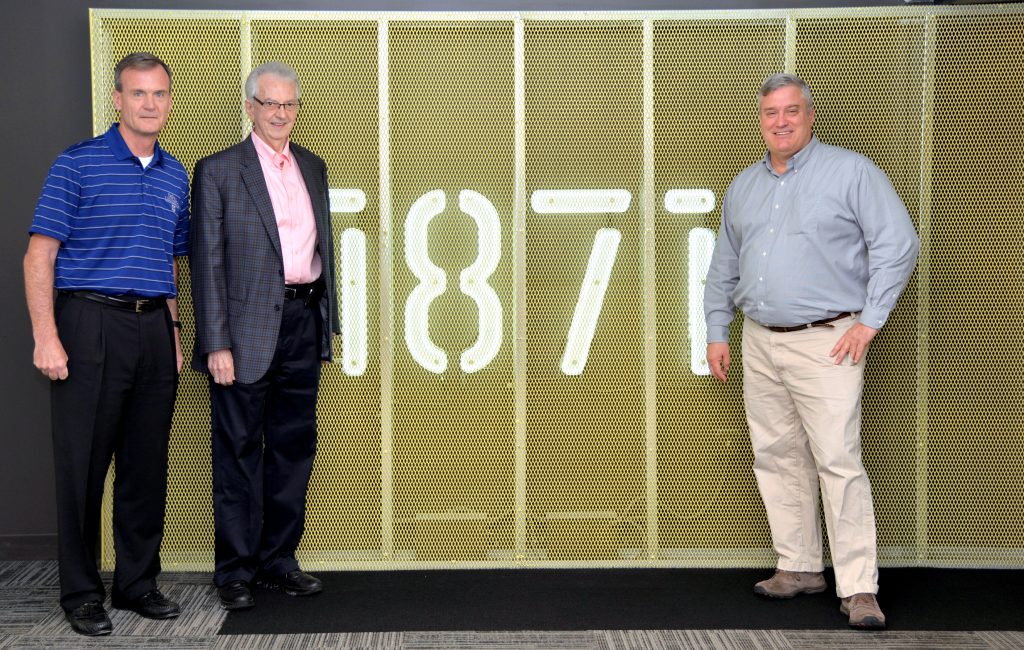
The Coleman Entrepreneurship Center has partnered with DePaul’s College of Law, College of Computing and Digital Media, and Office of Academic Affairs to join 1871, Chicago’s premier business incubator.
The collaboration gives DePaul students and faculty access to 1871’s events, workshops and lectures, as well as networking opportunities with industry thought leaders. The membership also has enabled professors to host classes, meetings and research presentations that showcase DePaul at the startup hub, which is located in the Merchandise Mart, about a mile north of DePaul’s Loop Campus.
DePaul’s membership includes dedicated office space in a prime spot on University Row, an area of 1871 where the University of Chicago, Northwestern University and other local universities are grouped. Last month, DePaul students mixed with students from other University Row institutions to participate in Campus 1871, a weekend-long challenge to brainstorm and pitch new business ideas. The event was a “tremendous opportunity for our students to work closely with students from the other 1871 universities to develop teamwork, creativity and innovation ideas,” says Bruce Leech (MBA’81), executive director of the Coleman Entrepreneurship Center. “It was the highlight of the year for the university partners, students and faculty who participated.”
College Hosts Fireside Chat on Diversifying Finance Industry
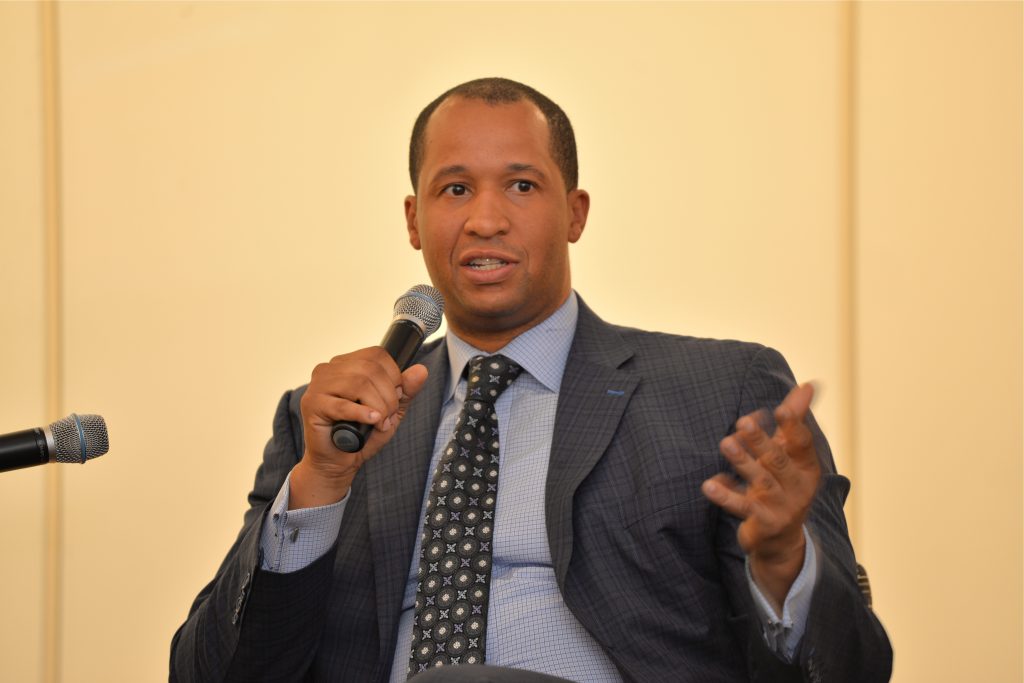
Business professors joined finance industry leaders in a fireside chat hosted at DePaul to explore ways to increase diversity and inclusion in the financial services field.
The “Diversity at Driehaus” talk was co-sponsored by the Driehaus College of Business and the PhD Project, a nationwide initiative that seeks to diversify business school faculties and attract more students of color to study and enter business. Assistant Professor of Accountancy Stephani Mason, one of a dozen PhD Project alumni on DePaul’s faculty, organized the Nov. 15 program for a second year in conjunction with the project’s annual national conference in Chicago.
This year’s discussion focused on the Financial Service Pipeline Initiative, an effort spearheaded by a coalition of Chicago financial services institutions and the Chicago Community Trust to attract more people of color to careers in finance.
Nationwide, representation of minorities in finance has changed little in the last two decades, according to Jamica Quillin, manager of diversity and inclusion at the Federal Reserve Bank of Chicago, who discussed the Pipeline’s goals. Industry leaders should see the issue as a long-term human capital imperative, she said, centered on recruitment, retention and mentoring of diverse finance professionals. “If we can work together, we can work significantly and with more impact,” she said.
The key to sparking change is to emphasize the positive bottom-line impact of diversity, said panelist Monica L. Walker, CEO of Holland Capital. Industry leaders need “to value diversity of thought and bring diversity of experiences to the table,” Walker advised, because it leads to better business decisions, including more effective strategies for marketing to diverse consumers.
The panelists also talked about mentors and other influences that led to their personal success. Alumnus Malik Murray (BUS ’96, MBA ’04), vice president at Ariel Capital, said money management was seldom discussed in his family and community during his upbringing. He didn’t envision a career in finance until he came to DePaul, where he encountered professors of color, as well as finance alumni who reached out to mentor him. “When you see someone who has been there, done that, it’s very powerful,” he said.
Murray said he now pays it forward by seeking to help other young minority professionals find their footing in finance. “I am passionate about getting more people of color into the business. If people don’t have access to you, sometimes they give up. So, if I can reduce the hurdle, I will.’’
